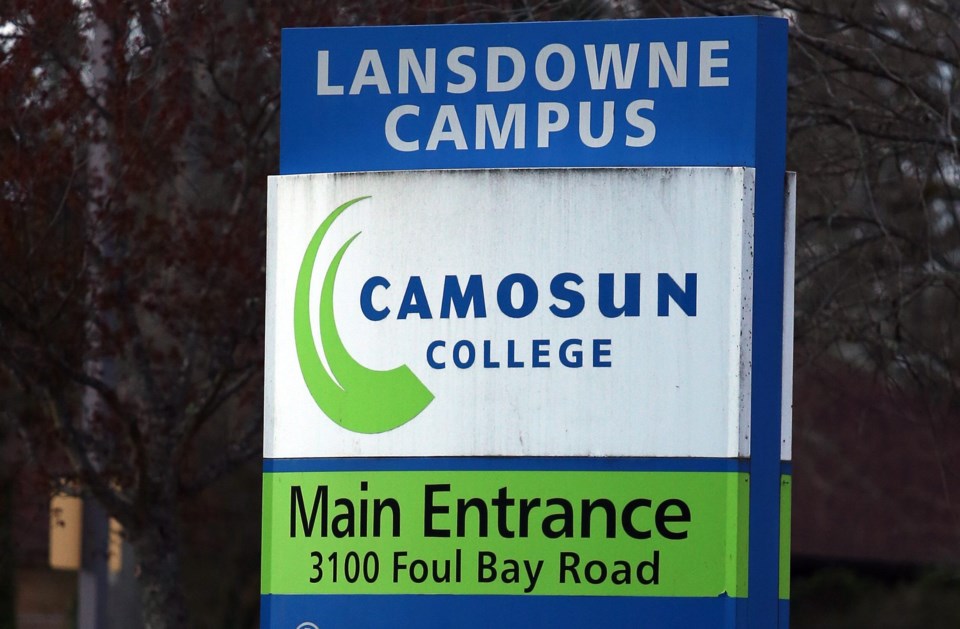Camosun College will offer a mix of online and in-person classes this September, following other Island universities that are trying to limit the number of students on campus amid the COVID-19 pandemic.
“As long as virus transmission rates remain low or in decline, Camosun College is planning for a hybrid mixture of online and in-person classes in the fall semester.” said college spokesman Rodney Porter.
“Courses that can be delivered using online technologies this fall will remain online. Courses that require students to come on campus in the fall to access labs, clinics, shops or other face-to-face delivery will be delivered in a manner that is safe for students and employees.”
The University of Victoria and Royal Roads University announced this week that most courses will be delivered online this September. UVic has said it is looking for ways to allow some students and staff to access on-campus research labs and participate in experiential learning as long as physical distancing can be maintained.
Vancouver Island University in Nanaimo will adopt a hybrid model similar to Camosun College’s, with some on-campus labs, practicums and experiential learning.
Camosun College’s School of Trades and Technology has many hands-on courses, including mechanical engineering, carpentry, plumbing and automotive classes.
When in-person classes moved online in March, Pat Jones, head of the Automotive Service Technician program, and instructors Mike Bocsik and Jim Gough had to think of innovative ways to allow students to get hands-on training from home instead of in the college’s shop room.
“We know that hands-on training is essential, especially when working with vehicles,” said Jones.
Instructors used a platform called Electude, which offers a detailed simulation of a vehicle engine on the screen.
Students can use a simulated scan tool, oscilloscope, multimeter and fuel-pressure gauge to do diagnostic testing of the engine, and can also simulate repairing a wire or replacing a component, Jones said.
Students are assessed as though they worked on a real engine. Jones said even when in-person classes resume, instructors will likely continue to use the online program.



